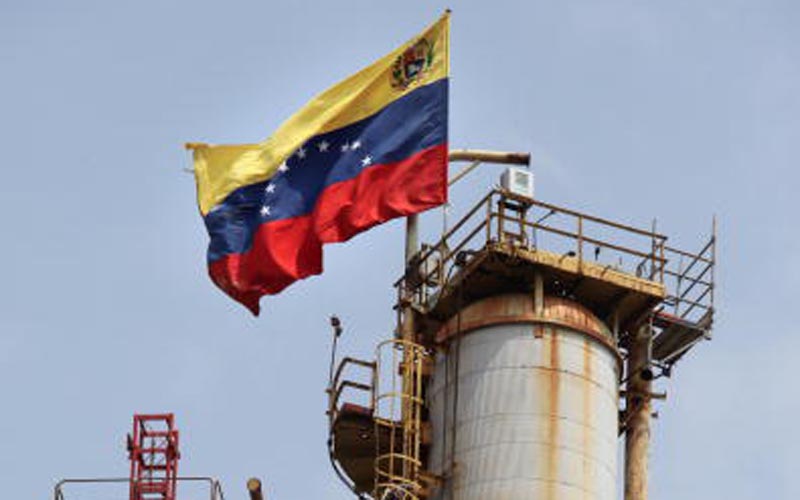 Venezuela’s oil exports declined about 10% in July from the previous month as key partners of state company PDVSA awaited U.S. authorizations to expand operations in the country, according to vessel tracking data and company documents.
Venezuela’s oil exports declined about 10% in July from the previous month as key partners of state company PDVSA awaited U.S. authorizations to expand operations in the country, according to vessel tracking data and company documents.
Washington in late July green lit producer Chevron to operate in the sanctioned country and export its crude to the U.S. under a restricted license that does not allow any payment to Venezuelan President Nicolas Maduro’s administration.
Other PDVSA partners are still waiting for similar authorizations.
Chevron’s chief executive Mike Wirth said on Friday the company expects to resume exports of Venezuelan oil to the U.S. this month under the new license, in a “limited amount.” He did not elaborate on the terms of the authorization, which was issued privately to the company.
Venezuela exported an average of 727,000 barrels per day (bpd) of crude and refined products last month, below the 807,000 bpd recorded in June. The OPEC country also shipped 227,000 metric tonnes of oil byproducts and petrochemicals in July, in line with the previous month.
Direct and indirect oil shipments to China made up for about 95% of total exports, while Venezuela’s political ally Cuba received 31,000 bpd of crude, gasoline and jet fuel, the data and documents showed.
Chevron’s exports of Venezuelan oil have been suspended since April, when PDVSA canceled cargoes it had scheduled for its joint-venture partner over payment problems related to U.S. sanctions on the OPEC country.
The company’s previous U.S. license and authorizations to other PDVSA partners had been revoked in March by President Donald Trump’s administration. Venezuela’s oil exports fell slightly in consequence, with more cargoes bound to China.
In the last week of July, Venezuela’s main oil terminal, the Jose port, emptied out almost completely, which boosted stocks of heavy crude and diluents, one of the documents showed.
Since the new license was approved by Washington following a prisoner swap with Caracas and criticism in the U.S. Congress over more Venezuelan barrels going to China, Chevron has been negotiating a new off-taking mechanism with cash-strapped PDVSA.
The arrangement is expected to include payments of mandatory royalties and taxes to Venezuela in kind, which could come from a portion of crude jointly produced or through oil swaps, with Chevron supplying Venezuela with diluents, sources close to the talks said.
(Reporting by Reuters staff; Editing by Daniel Wallis)